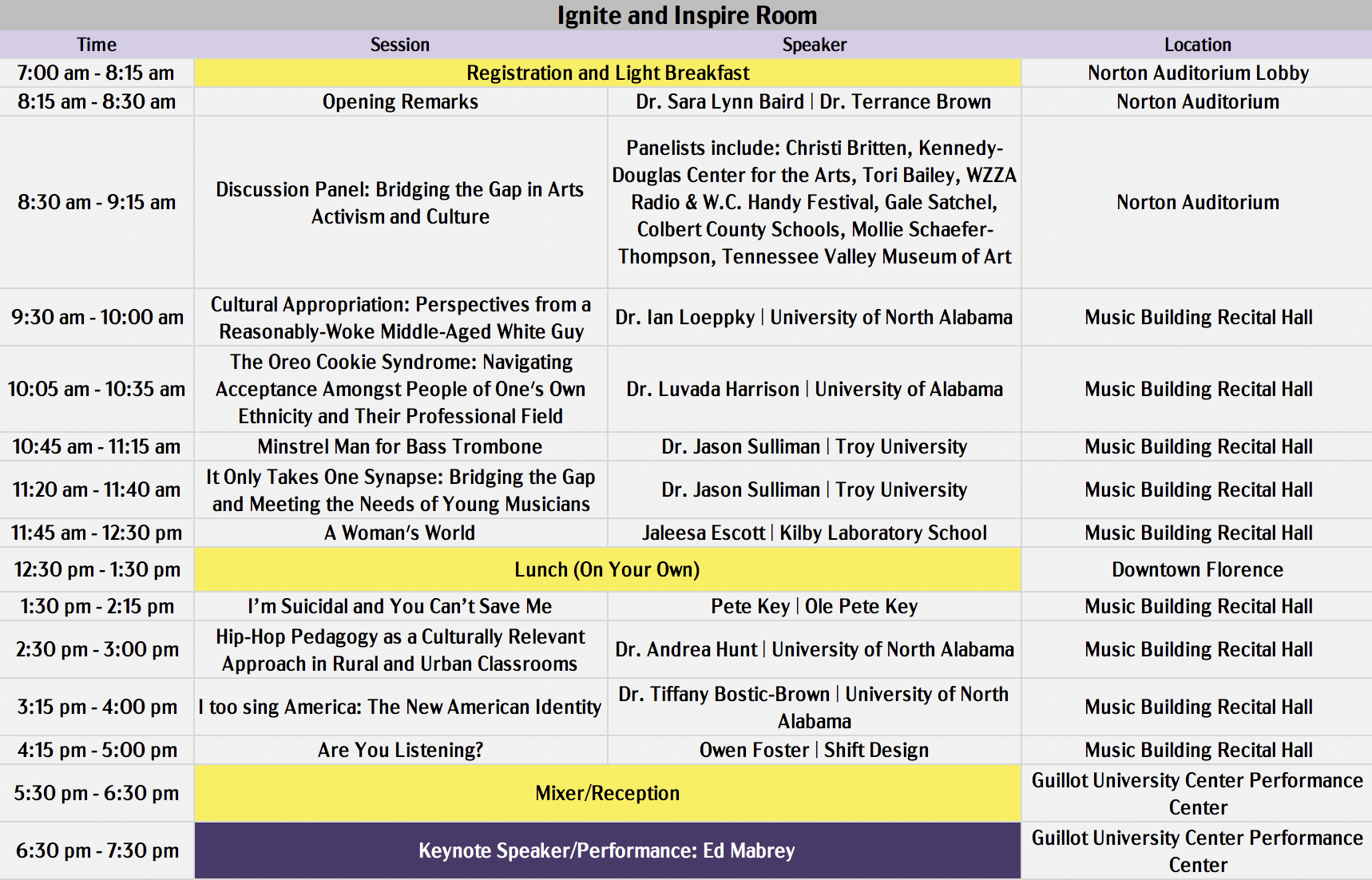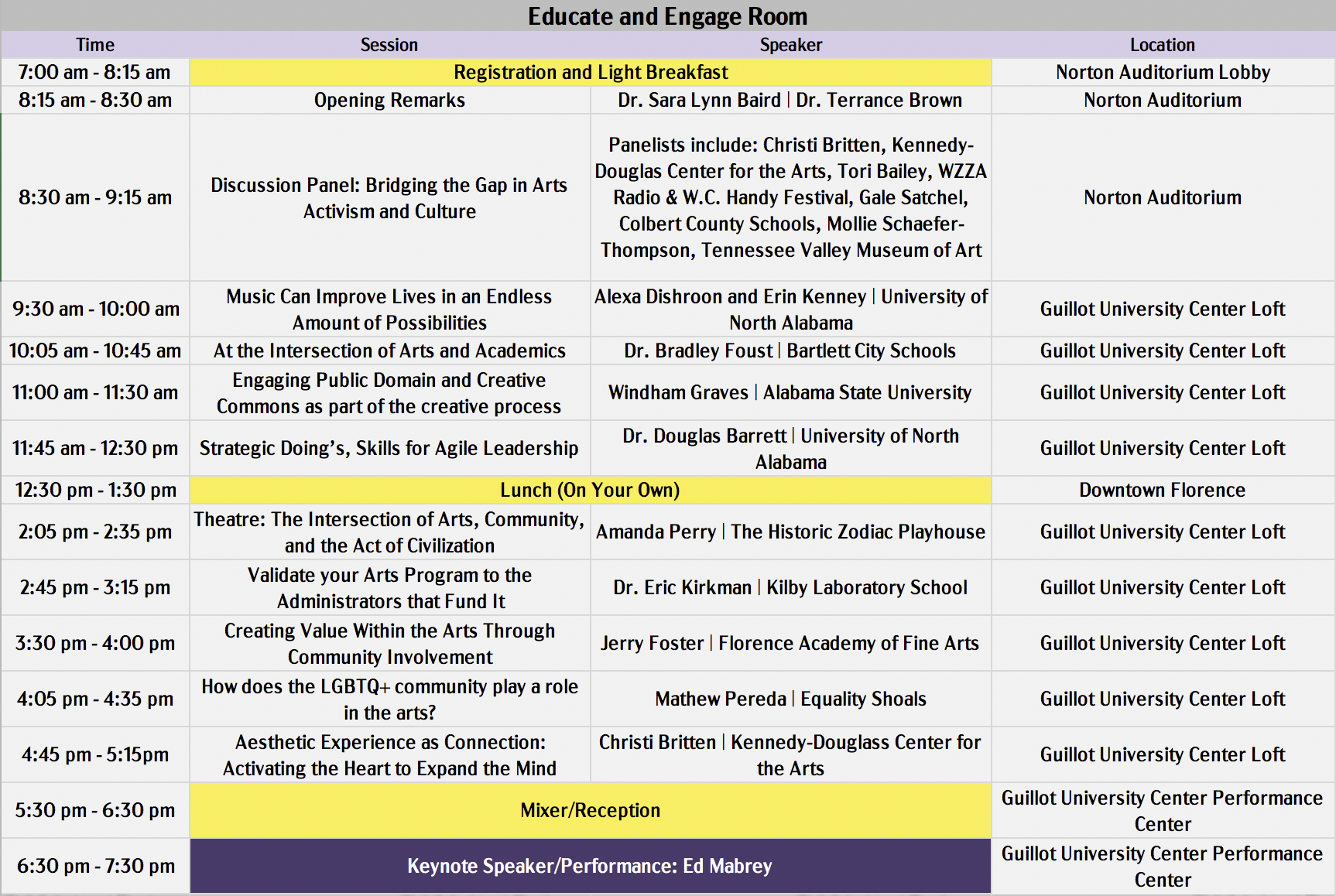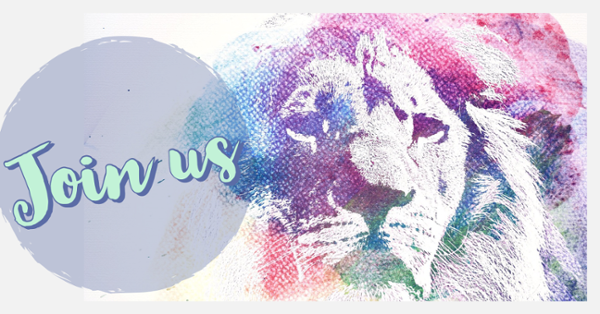I2E2 Conference Schedule
Get Ready for a full day of presentations and performances on Friday, September 20th.
Click on any of the tabs below, for more information on our speakers and presentations.
Can't Make it During the Day?
Tickets are also be available for our Mixer and Performance by World Renown Poet, Ed Mabrey!


|
Performances |
|
|
Jaleesa Escott |
Spoken work and song intermingled to address social issues through the medium of art. It promotes equity and access. Individuals need to know the importance of women rights and the issues they face in our current society |
|
Pete Key |
An illustrated monologue performance that will demonstrate how art can be used to educate, encourage, engage, and empower people. Traveling the world using his gift of drama, music, and motivation to educate and inspire young people is a dream that’s directly connected to the mission of this conference. The performance will also include a brief presentation on Mr. Key's background and his role in arts activism throughout schools and communities. |
|
Dr. Jason Sulliman |
T.J. Anderson is known for mixing styles and genres as well as reflecting on the human experience and using his music to increase global awareness. Several of his works highlight specifically the black experience in America. The minstrel period, an era of musical paradoy, found many black musicians performing with outward joy and inner sorrow. The composition Minstrel Man is a further projection of that feeling. |
|
Dr. Tiffany Bostic-Brown |
This performance is composed of music under represented due to gender, race, and nationality. Each performer will sing music that they find contributes to their cultural/gender identification. The recital gives voice to composers that have not had adequate representation due to race or gender. My hopes are to educate and move listeners to take interest and understand cultural contributions from all people in their community. |
|
Presentations |
|
|
Dr. Eric Kirkman |
This presentation is designed to share some experiences and insight for current and aspiring educators in the arts who may be struggling to "validate" their programs in their current school settings. The session is intended to empower the attendees with knowledge on how to market their programs and even secure funding for their programs in an environment that may not cultivate an appreciation for the arts or may not have the resources to support them. |
|
Estefania Cuevas Wilcox |
The programming of popular Latin American music can be a useful tool to engage Hispanic audiences in the concert hall. This presentation will provide ideas for music educators and performers who wish to invite a growing demographic to participate in their conversation. Through the incorporation of popular Latin American music genres, the concert hall becomes a space of inclusion for dialogue with a growing minority where both performer and audience members are heard. Included in this presentation are Jacksonville State University faculty, Julio César Barreto (Piano) and Eric Wilcox (Tenor). |
|
Amanda Perry |
Arts education and participation does more than create artists. It creates better citizens and members of communities, making equitable access for all ages an imperative in society. This presentation will include a discussion on how accessibility to theatre provides a place for all types of artists to collaborate, to create community, and to develop into contributing members of modern society.listeners to take interest and understand cultural contributions from all people in their community. |
|
Jerry Foster |
This presentation was created for administrators, teachers, students, parents and their communities to learn how to collaborate in the sharing and presenting of new and exciting artistic endeavors. It is a vehicle with which other schools can bring about significant artistic changes within the school system and community at large. |
|
Alexa Dishroon and Erin Kenney |
This presentation advocates the mission of music therapy. Concrete examples and evidence will be used to increase public understanding, change/form the audience’s perception of music therapy, and also to increase involvement and conversation about it. The presentation will hit the four cornerstones the conference holds, such as music therapy’s adaptability for creating equity in treating patients and presenting informative dialogue on the many benefits of it. |
|
Dr. Jason Sulliman |
The Community Play Along Project is a free initiative that connects university music faculty with area schools to provide free instructional videos for students. A page on a website can be used to host videos that are both tailor-made or broadly distributed to help young musicians develop a sense of characteristic tone, good practice technique, and phrase. Music faculty can create pages for any school, and students can bookmark the page for free and easy access. Faculty can focus on schools in their region where further collaboration can be encouraged. In this presentation, Dr. Sulliman will demonstrate the utility of the Community Play Along Project with some examples currently hosted on his website and demonstrate how he has used this method for recruitment as well as service to his community (locally, regionally, nationally). |
|
Dr. Ian Loeppky |
A presentation that aims to answer and discuss a powerful question - "What is my role as a member of multiple and overlapping dominant cultures with respect to incorporating artifacts from other marginalized cultures in my art-making?" |
|
Windham Graves, Presentation |
The proper use of Public Domain and Creative Commons can ensure students’ access to quality materials and increase their ability to source from and add to a common cultural network. This presentation explains the benefits and possibilities of releasing one’s own work into the public domain. This presentation also addresses the myriad of ways and resources to involve these sources in the classroom and how to encourage students to produce work that can utilize existing intellectual property without running afoul of the copyright system. |
|
Mathew Pereda | Equality Shoals, presentation |
The LGBTQ+ community has had a long history of discrimination that still exists today. The arts have been an outlet of expression for years and may be a stepping stone to truly express and find yourself. Mathew Pereda on behalf of the Equality Shoals aims to show all the aspects of LGBTQ+ communities and how they play a vital role in the arts. Through presenting history of LGBTQ+, we can show what mistakes were made and how to avoid those situations in the arts. Also, as a community who has had their voices suppressed we can take this opportunity to shows others that ALL voices matter and give a better understanding of LGBTQ+ art forms. |
|
Luvada Harrison |
Growing up, Harrison was often accused of speaking "white" and labeled an Oreo Cookie because she spoke differently from her peers. Deciding to pursue a career in classical music seemed to further mystify her peers and call into question how she identified as a woman of color. This presentation discusses navigating the waters of acceptance both professionally and within one's own ethnicity. Through discussion and shared experiences, this presentation seeks to address stigmas attached to race and how those stigmas inform our perception of an individual's ability, interest and mastery of any given artistic endeavor. |
|
Workshops |
|
|
Dr. Bradley Foust |
Authentically Documenting the Process of Learning Through the Arts As schools and teachers begin to seek ways to engage students in more creative ways of thinking, the arts have become an avenue for the prompting of individual student expression, demonstration of student understanding, and higher levels of student communication and collaboration. However, the impact of arts integrated study is often documented through non-artistic means, such as standardized test scores. This session will introduce a model for documenting student growth and teacher effectiveness in the arts through a portfolio-based data collection model currently being used in school systems across the state of Tennessee. |
|
Owen Foster |
People around the world are in constant search for inspiration and knowledge. They seek out thought leaders, travel to conferences, and in today's world immerse themselves in digital media such as YouTube and Ted. These people walk away full of energy and newly found passion. But stepback and think of all the people around you that have just as many impactful stories and wisdom as those stage. This presentation and interactive discussion will be about really listening to the people that we overlook. The ones that have so much knowledge and wisdom to pass along, so much passion to teach other about their surroundings, and so deeply care about helping the next generations make the world a better place. |
|
Dr. Doug Barrett, Ms. Janyce Fadden, & |
In this session attendees will experience the first two skills taught in Strategic Doing’s Ten Skills for Agile Leadership, which are 1) to create and maintain a safe space in which deep conversations can occur; and 2) framing the conversation with the right question. Building these skills allows individuals to grow in their ability to have successful collaborations. Attendees will learn through interactive exercises how they can improve their skills starting today. |
|
Discussion Panel |
|
|
Bridging the Gap in Arts Activism and Culture |
Panelists Include:
|
